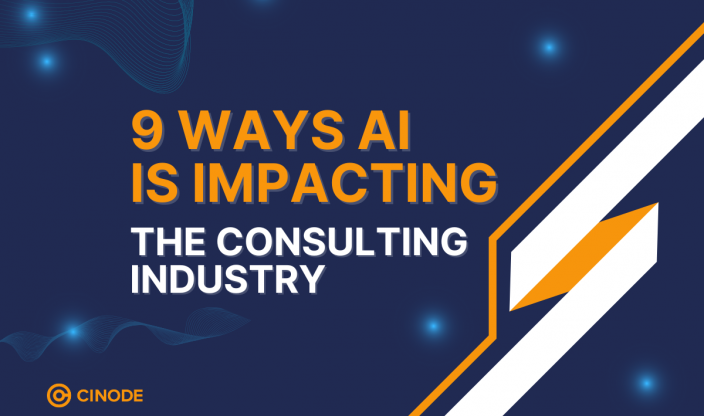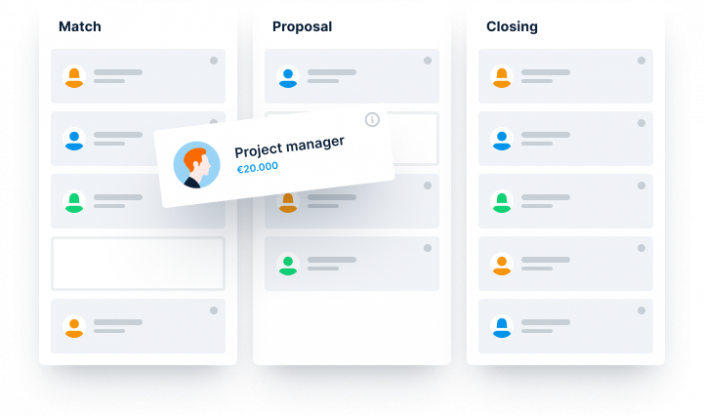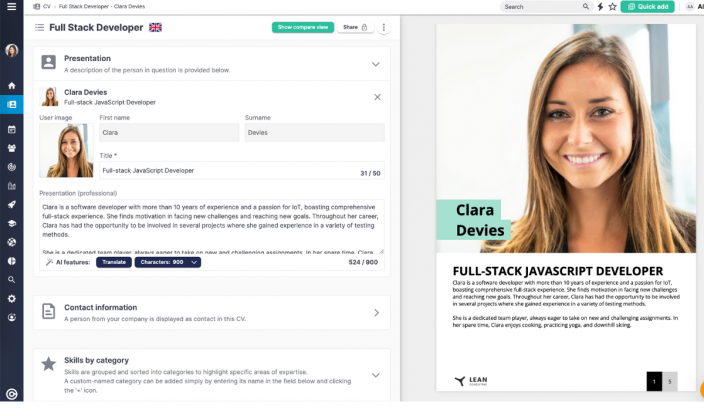AI – an impending shift within the junior consulting profession

Artificial intelligence (AI) is transforming the professional landscape, including the consulting industry. For junior consultants, this entails both challenges and opportunities. In this article, we explore how AI is impacting junior positions in the consulting profession and how newcomers can navigate this changing environment.
It’s time to say goodbye to our junior consultants
The ability of AI to automate routine tasks may lead to a reduction in available entry-level positions for junior consultants. This automation risks rendering some basic tasks redundant and may thereby limit the practical experience crucial for professional development. For example, there will no longer be the same need for human hands-on involvement in tasks such as creating PowerPoints or conducting research. Additionally, the increasing use of AI in academic and everyday tasks may undermine the development of critical thinking and problem-solving skills essential in junior roles.
Industry-specific knowledge, relationships, and a professional approach are some of the strengths that senior consultants can continue to enjoy, while juniors need to acquire them on the job. These aspects are simultaneously those that universities cannot or do not wish to teach. As AI can now perform tasks that junior consultants would have previously handled, fewer juniors may have the opportunity to develop soft skills through consulting. Instead of viewing AI solely as a tool, its emergence can be seen as competition for junior consultants.
The future for junior consultants in an AI-driven world may be uncertain. While some can adapt and learn to work alongside AI, others may find their roles becoming obsolete. The rise of AI is thus a double-edged sword for junior consultants. On the one hand, it offers opportunities for development and innovation, but on the other hand, it poses significant challenges, including a potential reduction in entry-level jobs and an increased skills gap.
Or…
A highway for young career enthusiasts in the consulting profession
AI technology automates routine tasks, potentially rendering certain traditional junior responsibilities obsolete. However, this opens doors to new roles and responsibilities. Junior consultants can now focus more on analytical and creative tasks, with AI serving as a tool rather than a replacement.
To stay relevant in the AI era, junior consultants need to develop both technical and soft skills. Knowledge in data analysis, machine learning, and AI ethics is becoming increasingly valuable. These are skills that young individuals are constantly trained in, and in some aspects, they can be more value-adding to clients than their senior counterparts. At the same time, the ability to think critically, solve problems, and communicate with clients is invaluable.
Instead of viewing AI as a threat, junior consultants can use these systems as a form of digital mentor. AI can provide insights into data, assist with decision-making, and offer personalized training, accelerating learning and professional development. The future for junior consultants looks bright in an AI-driven world. Those who adapt and learn to collaborate with AI will find themselves well-equipped to take on more complex and valuable roles in the consulting industry.
AI is not just a disruptive force but also an opportunity for development and growth. For junior consultants, it offers a chance to rapidly develop their skills and become more valuable in their roles. It’s time to embrace AI and see it as a partner in the career journey.
AI: Closing words from a prospective junior consultant
THERE, we thank GPT-4 for providing two different perspectives on how AI can impact the outlook and daily life of junior consultants. My name is Måns Wirfelt, and I work as the Business Area Manager for IT & Analytics at Lunicore Student Consulting in Lund. I am also pursuing a master’s degree in Data Analytics and Business Economics at Lund University.
In my work and at the university, I encounter individuals daily who work with, study, or have an interest in AI. However, I also come across many who simply turn a blind eye or are intimidated by the developments to the extent that they choose not to learn more.
Regardless of whether the first or second paragraph above aligns better with your view of AI for junior consultants, the following is a fact:
The two opening sections of the article were authored with very little hands-on involvement, thanks to generative AI, and it took me no more than 10 minutes. Personally, I believe that many junior positions may be at risk, while other junior individuals can quickly climb the ranks as they suddenly gain superpowers.
Lastly, I want to send a message to you seniors who still do not take technology seriously. It’s time to firmly grasp your own understanding of how AI can be used in your sector, in your organization, and on an individual level. If you don’t, it won’t be long before either another consulting firm or we juniors start taking your clients away from you.
Best regards,
Måns Wirfelt & GPT-4

Guest blogger - Måns Wirfelt, Manager / Business Area Manager for IT & Analytics at Lunicore Student Consulting
Guest blogger - Måns Wirfelt, Manager / Business Area Manager for IT & Analytics at Lunicore Student Consulting
You may also like...
All posts
Jun 18 2024 · Consulting
Future-proof your business: steps towards an efficient, up-to-date, and sustainable consulting practice

Jun 07 2024 · Consulting
9 Ways AI is Impacting the Consulting Industry

May 28 2024 · Consulting, Konsult
Who is best at equality, really?

May 24 2024 · Consulting
Cinode Launches Europe-wide Fishing Competition for Consultants and Consultancies

May 17 2024 · Consulting
How AI and digital tools are reshaping the role of the consultant

May 11 2024 · Consulting
Get insights about your unassigned consultants

Apr 30 2024 · Consulting
Generative AI in combination with other digital platforms is the hub of the hybrid consultant

Apr 09 2024 · Cinode, Consulting
Your Consultant Resume on Autopilot with AI Support

Mar 28 2024 · Consulting
6 Easter Eggs to improve your Consultancy

Mar 26 2024 · Cinode, Consulting
8 Important Reasons to Expand Your Network of Subcontractors and Partners – And How to Do It!

Mar 19 2024 · Consulting
The hybrid consultant creates greater value for the customers, themselves, and the consulting company

Mar 12 2024 · Consulting
